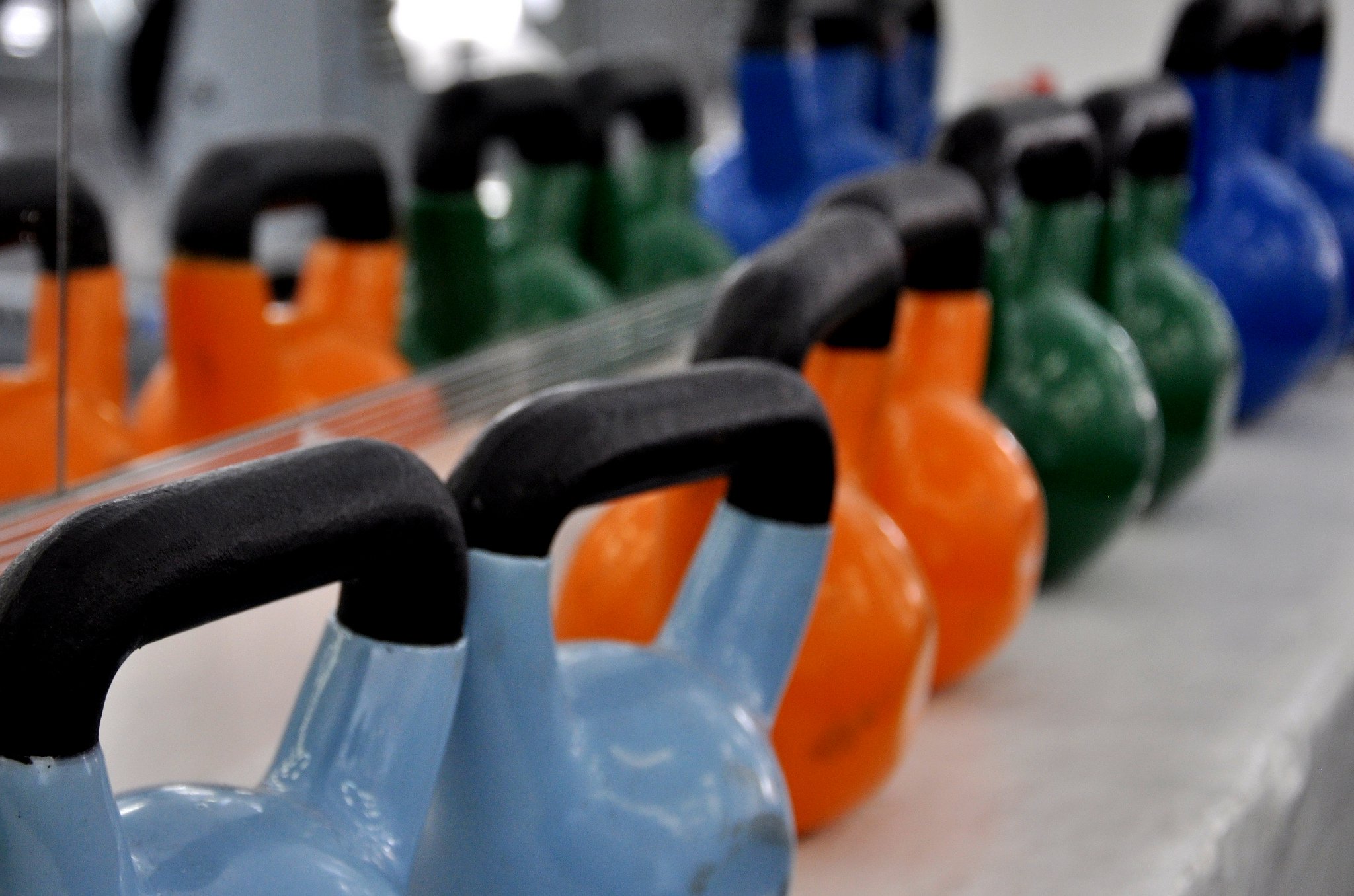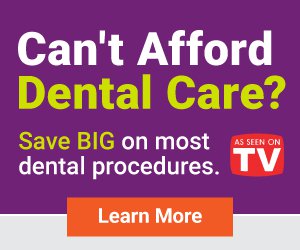Do You Know How Exercise Impacts your Dental Health?
Working out is generally good for your whole body —except your your teeth, in some cases. But do you think the cons outweigh the pro of exercise?

Photo by Victor via Flickr.
Whether you enjoy it or not, exercise is important for keeping your body functioning healthy. Of course, while there are major benefits to exercising like stress relief and building muscle, there are also some serious downsides. When thinking of the negative aspect of exercising, joint damage or just the painful thought of forcing yourself to go to the gym may come to mind. But did you know that exercise can have an impact on your dental health? Here are some of the things you should be aware of when it comes to how exercise affects your dental health.
Negative Correlation
People who do heavy training and exercise often have overall good health. But one study published in The Scandinavian Journal of Medicine & Science in Sports found that while vigorous exercise can benefit the body, it can actually be bad for teeth. Researchers found that heavy training can contribute to dental problems —often in unexpected ways. Elite athletes are at higher risk for dental erosions and exercise-dependant caries (or cavities). Their study stated that “load-dependent changes in saliva parameters point out the need for risk-adapted preventive dental concepts in the field of sports dentistry.”
So, to gain a better understanding as to why athlete’s teeth are suffering in health, researchers with the dental school at University Hospital Heidelberg in Germany and other institutions recruited 35 competitive triathletes and 35 age and gender matched healthy non-athlete adults. Each volunteer had to complete a questionnaire about their diets, typical hygiene routine, and exercise habits. In the study, all volunteers visited the dental lab for a full oral examination after sitting quietly. On top of that, saliva was collected several times from 15 of the athletes who completed a 35 minute strenuous run.
Once the researchers compared the differents groups teeth and spit, they found some interesting results. When compared to the control, researchers found that the athletes showed significantly more tooth enamel erosion. And as the athlete’s training time increased, they tended to have more cavities. The more hours an athlete spent exercising and training, the more likely they were to develop a cavity.
Main causes of dental issues among athletes:
Sports Drinks
Many athletes prefer to rehydrate by drinking sports drinks or energy drinks. Although the electrolytes found in these beverages can in fact help your body refuel and stay hydrated during a workout, they can take a major toll on your teeth. In fact, a study published in the clinical journal of the Academy of General Dentistry found that there is so much acid in sports drinks, that damage occurs after only 5 days of consistent consumption.
"Young adults consume these drinks assuming that they will improve their sports performance and energy levels and that they are ‘better' for them than soda," says Poonam Jain, BDS, MS, MPH, lead author of the study. "Most of these patients are shocked to learn that these drinks are essentially bathing their teeth with acid."
Another contributing factor to athlete’s dental problems is how they drink these beverages. Taking sips throughout a workout gives teeth frequent exposure to the damaging sugars and acids in these sports drinks, making them vulnerable to tooth decay.
Open Mouth Breathing
During intense exercise, people tend to breath heavily with an open mouth. Mouth breathing dries out your mouth, reduces saliva flow, and creates an environment for bacteria to thrive. Adding corrosive sports drinks to the mix only makes things worse for an athlete’s teeth. Rapid, heavy breathing.
The same study mentioned above also felt that open mouth breathing played a role in tooth decay. Researcher Cornelia Frese that it can lead to dental erosion and cavities. “The athletes breathe through the mouth during hard exercise,” she mentioned. “The mouth gets dry, and produces less saliva, which normally protects teeth.” Thus, teeth are at an even higher risk for dental issue among athletes.
Positive Impact of Exercise on dental health
Regular Exercise Prevents Gum Disease
A study published in the Journal of Dentistry in 2005 found that regular exercise can help lower the risk of contracting periodontitis, or gum disease. After studying the relationship between gum disease and physical activity, the report concluded that exercising regularly is associated with lower risk of developing gum disease. In fact, the people who regularly worked out and had never smoked were 54% less likely to have periodontitis compared to those who reported no regular physical activity. A National Health and Nutrition Examination Survey also found that even partially active people (exercising 3 times or less per week) were 33% less likely to have periodontitis than those who do not exercise.
Correlation between BMI and Oral Health
Maintaining a healthy BMI (body mass index) is actually very beneficial for your oral health. Health issues associated with obesity like hypertension and diabetes are known for contributing to poor oral health. In fact, a study in The Journal of Periodontology from the University of Florida conducted a study to find the affect that weight has on dental health. Researchers looked at BMI, body fat percentage, and oxygen consumption to assess how healthy each participant was. According to the study “Individuals who maintained normal weight, engaged in the recommended level of exercise, and had a high-quality diet were 40% less likely to have periodontitis compared to individuals who maintained none of these health-enhancing behaviors.”
Exercise doesn’t have to hinder your oral health
Despite the oral health cons of exercising, staying in shape doesn’t have to take a toll on your teeth. These are some tips you can follow to protect your teeth during regular exercise.
Alternative hydration
Electrolyte replacement is necessary when you sweat profusely during a workout. However, there are alternative ways to rehydrate than to sip on teeth eroding sports drinks. In fact, most commercial energy and sports drinks and contain many ingredients that your body doesn’t need to refuel. Here are some better, natural drink options:
-
Water
Bottled water or even tap water is a great drink to keep yourself hydrated during physical activities. If you want to make it even healthier, you can add a splash of lemon or a pinch of unprocessed salt to get more minerals, add a little flavor, and replenish electrolytes. -
Coconut Water
Natural coconut water with no additives is an extremely healthy choice. Not only is it very hydrating, it also has anti-inflammatory properties and helps balance glucose and insulin levels.
Nose breathing
Whereas mouth breathing can dry your mouth and increase risks for dental caries, nasal breathing can protect your teeth and has more physiological advantages. For example, your nose and sinus membranes produce nitric oxide when you breath through your nose, which significantly increases your lungs’ oxygen absorption capacity and helps lower blood pressure.
-
Buteyko Breathing Method
This breathing method is named after a Russian physician who developed this method to help people breathe more efficiently. With training and practice, you can train yourself to breathe through your nose even during exercise. Find out more about the Buteyko Breathing Method.
Healthy Dental Regimen
Sticking to a healthy dental regimen will also keep your oral health on track. Some of the things you should be doing include:
-
Brushing teeth twice a day
-
flossing and rinsing regularly
-
keeping up with regular dental cleanings and examinations
As long as you are aware of how exercise impacts dental health, you can avoid risk factors and stay motivated to keep your whole body happy and healthy.





